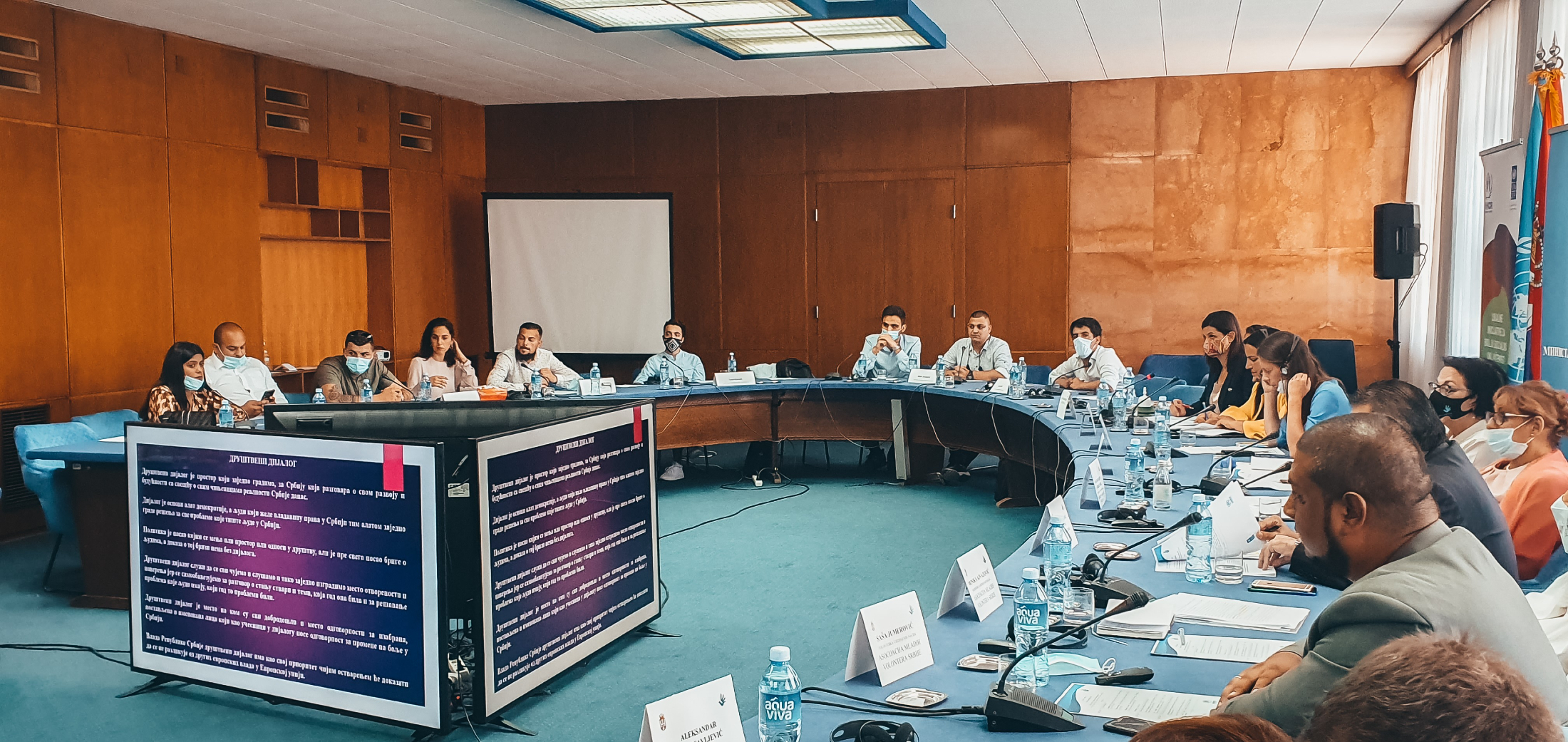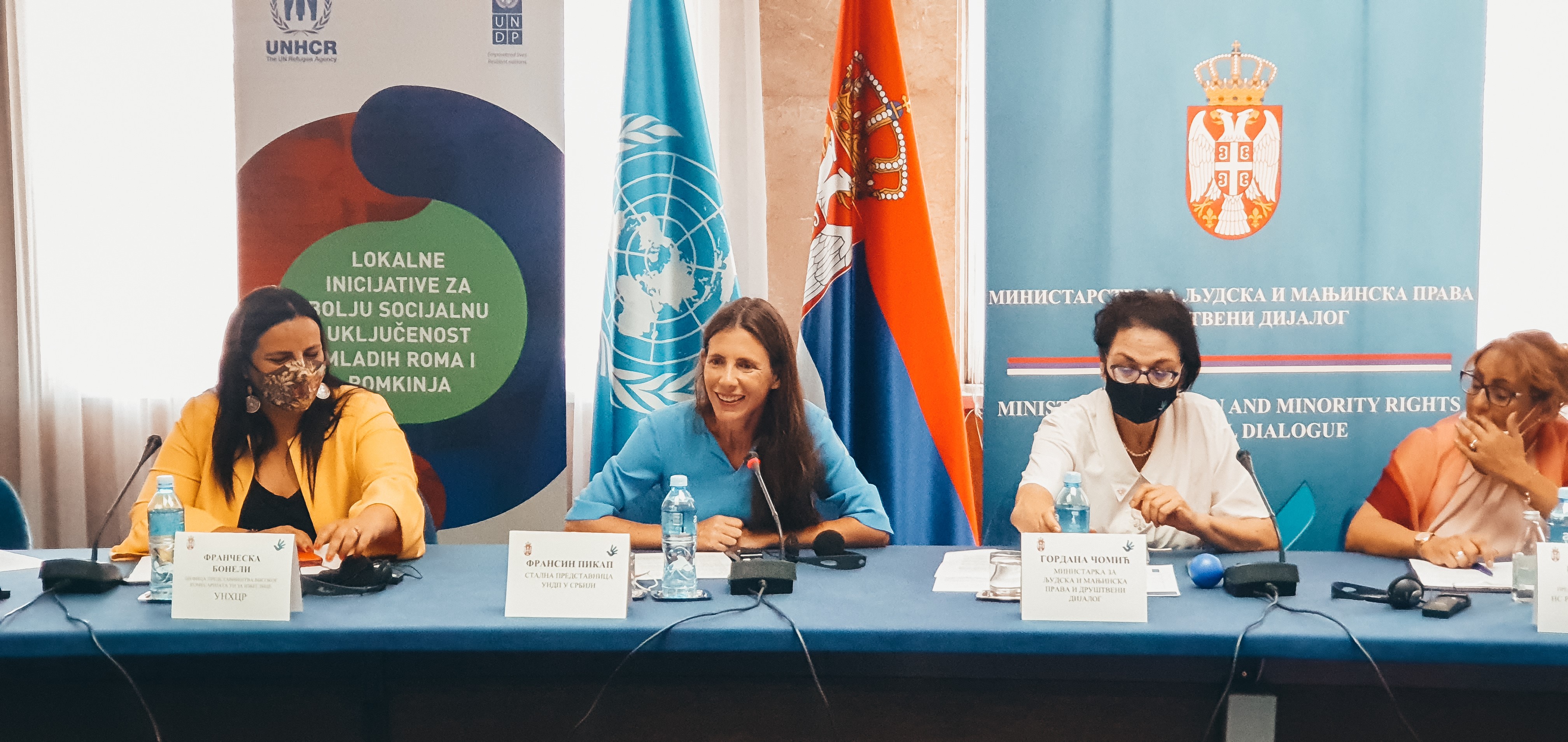On July 7th in Belgrade, the Ministry of Human and Minority Rights and Social Dialogue, the United Nations High Commissioner for Refugees (UNHCR), the United Nations Development Program (UNDP), and the Roma National Council signed the joint Statement of Intent to reaffirm their commitment to support employment and improved social inclusion of young Roma women and men and other vulnerable groups in Serbia.
High unemployment has a disproportional impact on the Roma community due to various factors, such as social exclusion and poverty. Stigma and prejudices that Roma still face limits their access to education, employment and public services.
On behalf of the Government of the Republic of Serbia, the Statement of Intent was signed by the Minister of Human and Minority Rights and Social Dialogue Gordana Čomić. She said that, in the future, the Roma would always be included in discussions that concern their fate.
“It’s good for our society, it makes it more human, it cancels out the cruelty of discrimination and the hate and bigotry against the Roma. The Roma are a part of Serbia, Serbia is their homeland. It is our strongest wish, rather than just an obligation, to turn this into a reality in Serbia,” said Čomić.
Francine Pickup, UNDP Serbia Resident Representative, stated that increasing the employment rate of young Roma men and women would benefit the whole society in multiple ways.
“In partnership with the Government of Serbia and UNHCR, UNDP calls for employing more young and educated Roma men and women, especially in the public administration. It will improve the social inclusion of Roma, provide the Roma children with role models they can look up to, and also help Serbia as a country facing high emigration rates, to use all the human potential of its society,” said Pickup.
Francesca Bonelli, Head of the UNHCR Office in Serbia, said that the goal of the joint Statement of Intent and cooperation with the Ministry of Human and Minority Rights, UNDP and the Roma National Council, is to promote human rights and boost the inclusion of vulnerable social groups.
“The Roma, refugees, IDPs, and other vulnerable groups, and especially the young people among them, have a lot of potential. With their human capital, they can provide major contributions to the prosperity of the whole society. Our role is to provide support to the government so that every individual could get the opportunity to offer their full potential. UNHCR is ready to work both with them, and for them” said Bonelli.
As a good practice example, the thematic dialogue presented the results of the project Local Initiatives for Social Inclusion of Roma Men and Women in Serbia that was jointly implemented by UNDP and UNHCR. Thanks to this initiative, 65 young Roma women and men were engaged as UN volunteers in local institutions and CSOs, getting new knowledge and experience, and after the volunteering period, 26 of them found employmnent. Another important result of this project was the boosted motivation of local institutions to continue engaging people from the Roma community to work on improving the living conditions of vulnerable groups. Starting from this year, young refugees will also be included in the project.
All 65 UN volunteers founded the Association of Youth Volunteers of Serbia, which kept providing support to the Roma community during the COVID-19 pandemic by disseminating information about the importance of prevention, distributing PPE, and assisting the Roma children with online schooling. At the moment, they’re active in the outreach campaign to inform the Roma population about the importance of COVID-19 vaccination. Thanks to the support of the UK Government, the Office for Information Technologies and eGovernment, and the Ministry of Public Administration and Local Self-government, they have reached over 10,000 Roma in 25 municipalities.
Francesca Bonelli, Head of the UNHCR Office in Serbia, Francine Pickup, UNDP Resident Representative in Serbia and Gordana Comic, Minister for Human and Minority Rights and Social Dialogue.

 Locations
Locations





